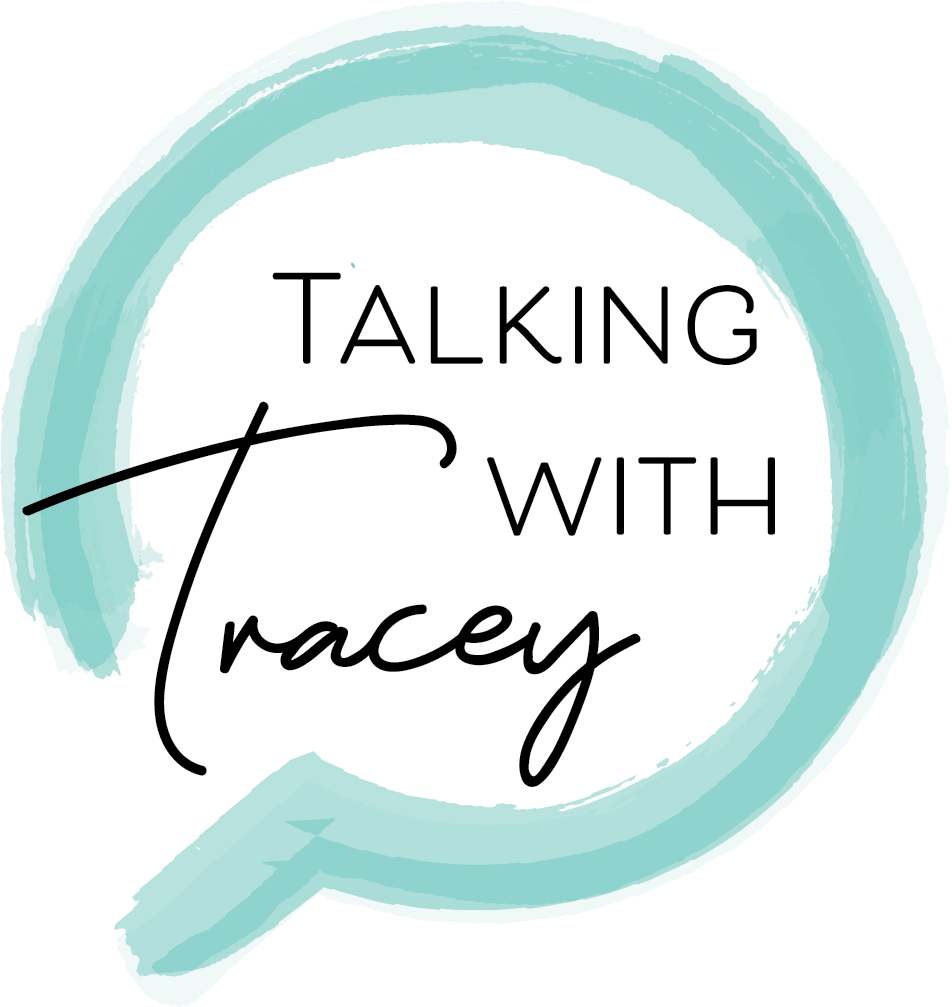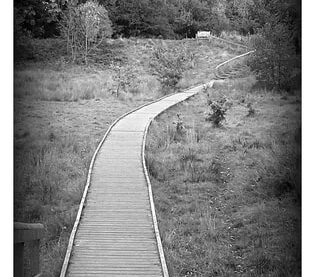We’re living through unprecedented times. Covid-19 has highlighted a timeless human struggle about uncertainty. We cannot tolerate not knowing.
We crave certainty. We like predictability. We strive for control by putting people and issues into two categories: good or bad, right or wrong, moral or amoral, beautiful or ugly, yes or no, black or white. It’s seems so easy to manage our life this way; just pick between two choices.
Unfortunately, the world is entirely made of up of varying shades of gray. Almost every person, issue, or problem is nuanced. Y’all, we are incredibly complicated creatures and we create extremely complex problems! We couldn’t possibly fit ourselves or our world into clean, tiny, little boxes of good or bad. Damn, if we don’t give it a try though!
Almost all my clients over the past 18 years have been black and white thinkers. Polarized thinking is actually what lands most of them in my office. We’ve been culturally indoctrinated to believe that we’re supposed to feel “happy” or “good” all the time and when we don’t, there’s something wrong with our world, and we better fix it. Sometimes that’s true, but more often, it’s the inability to accept feeling momentarily uncomfortable. The in-between, unknown, uncertain moments are the hardest. I’ve spent most of my career as a therapist trying to help people, not just live in the gray, but embrace it. There are times when life requires action and other times that life requires patience and a new perspective.
This pandemic has brought laser focus to the inherent problem of polarized thinking. We want answers and we want them right now. Our lives are being turned upside down and inside out. For the love of god, could someone just tell us what to do?! Could we please get some clear answers without contradictions? Could we all just get on the same page and do the same thing?
Since there are no exact answers, we try to create certainty for ourselves. We pick a team, put on our jersey and defend our position. There’s a question, and there can only be two possible choices-kindly pick one. People vs. Economy, Safety vs. Fear, This Scientist vs. That Scientist…you get the picture. Except maybe it’s not that easy. Maybe there’s the gray-the space where we have to hold all the options as possibilities.
If you’ve never had the mind-numbing experience of taking a college research and statistics class, or reading actual scientific literature, you might not fully understand how research works. Here’s my incredibly simple description: Scientific research is a long, arduous process defined by very specific criteria. You have to decide what to study, define all the minute details of your methodology-how, who, when, for how long, under what circumstances, what variable will stay the same, what variable will be different, etc. You then have to perform the experiment and document all the results. You have to do all this in a way that can be replicated by other scientists. At the end of your research, you write up the results and include a section for what questions this specific study may have answered and what questions need further research. It’s only after several research studies have come to the same conclusion, using all the same methodology, that we can safely call something a “fact.” This process takes years. How long have we known about Covid-19? Six months-max? I have food in my pantry older than that.
So, what do we know about this virus right now? Not a whole heck of a lot! And what we think we know based on preliminary research, will change next week when new research comes out. That’s how this whole thing works. It’s very gray in the beginning stages. Not because anyone is trying to fool you, but because the process works that way. If you’re a black and white thinker, you’ve possibly come to the conclusion that the government is lying to us or they have no idea what they’re doing because the information keeps changing and therefore, they shouldn’t be trusted or maybe you decided any public place is completely off limits for the next year. How can we make decisions based on a moving target? Not knowing is incredibly anxiety -provoking.
Understanding the fluidity of this situation means I have to accept ambiguity. I have to be ok with not knowing. I have to understand that recommendations will change with changing information. I have to appreciate the scientific process and be flexible enough to tailor my behavior to current research, while also recognizing that what we’ve been doing might be considered unnecessary in a few months (aka worrying about wiping down groceries.) Leaning into the uncertainty, might create more anxiety initially, but over-time, you’ll learn to become more of a problem solver, you’ll be more adaptable, more flexible in your thinking. You’ll start to see the world in gray and be more comfortable living without absolutes.
On the other hand, you may have watched some YouTube videos of doctors who are handing you certainty. Certainty feels good. They must know the truth. I’ll believe them, because I have to believe something concrete. When I know what to believe there’s a clear path forward. Everyone else is blindly following a corrupt government. I know the truth. I feel empowered and momentarily less anxious. I also feel angry and resentful. I see the world as “out to get me.” Inevitably, you will feel more anxious in the long run.
Here’s the reality of our current existence: We just don’t know enough yet. Maybe everyone is right to a degree, maybe everyone is wrong to a degree. Maybe there’s some really important information that hasn’t even been discovered, but it may come along three months from now. Maybe we’re doing things we don’t need to be doing or maybe we should do much more. We just can’t be sure. It’s really a difficult place we’re in right now. This not knowing. It’s also a normal place to be in right now, because before we can know something we have to work through the painstaking process of uncovering information. Part of that process will involve conflicting data. Can you tolerate the not knowing? Many cannot and p
Our current political climate loves polarized thinkers. Politicians have grabbed onto this emotionally charged issue, like so many others, and made it an us vs. them battle. You’re either about saving people’s physical health or saving their financial and emotional health-and we all feel the desperate need to pick a side. Like most of the other hot button issues in this country (healthcare, immigration…) polarizing politics prevents any actual work from being done. Politicians never seem to be having the right conversations. Like, how could we make this work? What needs to be fixed so each side is heard and contributes ideas to a resolution? What other information do we need to make good decisions? Instead, the conversation is a revolving door of whether or not something should happen. It’s a constant black and white, good/bad, right/wrong argument. As long as the conversation spins in this circle, no one has to DO anything.
Is it possible, that during this pandemic, we could stop trying to be right and attempt to be kind instead? Could we leave room for the unknown? Could we accept that we don’t have all the answers? Could we attempt to understand that everyone’s experience in this is different and therefore not inherently wrong? Could we decide that being a decent human being might mean wearing a mask even though we think it’s BS because right now it’s the best recommendation based on the current scientific research that we have? Or because there’s a possibility that it may prevent a high-risk person from getting the virus? Could we leave room for the notion that the government isn’t out to make our life miserable, but rather trying to make the best decisions with the information they have, AND that some of those decisions are making our lives miserable and seem over the top? Can we hold the tension of these two ideas at the same time without picking a side? Can we try to live in the gray? Surviving and thriving under these circumstances requires it.
Living in the gray opens up a world of possibilities. A world where the answers don't have to fit neatly inside one of two boxes. It unlocks the infinite power of our imagination to create solutions. Nuance allows us the opportunity to cultivate compassion and empathy for those who disagree with us. Maybe we could drop our righteousness for a hot second and ask a few simple questions: What can I do to help myself right now? What can I do to help others right now? What can I do to remember this isn’t just about me? How can I contribute to this situation without doing harm or adding to the chaos and division? How can I remember to filter all the information I’m receiving and sharing through the lens of scientific scrutiny? Living in the gray might be hard, but as one of my favorite writers, Glennon Doyle says, “We can do hard things.”


